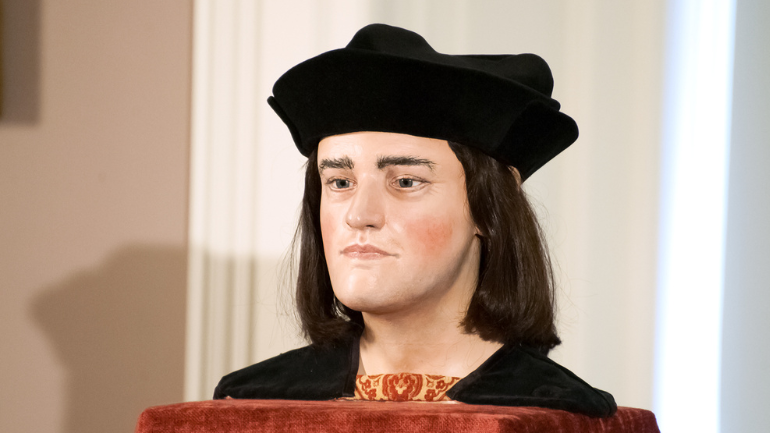🧬 Science has done what centuries of historians never could — uncovering a royal secret so explosive, it threatens to rewrite the bloodlines of English monarchy forever.
When archaeologists unearthed the bones of King Richard III beneath a Leicester parking lot in 2012, the world celebrated a triumph of history and science. For the first time, DNA had confirmed the identity of England’s most controversial king — the last Plantagenet, slain in battle and vilified for centuries. But what began as a victory for historical truth soon turned into a revelation so unsettling it may never make it into textbooks.
Researchers expected to find genetic proof linking Richard to the royal male line descending from Edward III. Instead, their analysis of the Y chromosome — passed down unchanged from father to son — exposed a devastating anomaly: the royal line had been broken.
In plain terms, somewhere in England’s most sacred family tree, a king was not the son of his father.
This “false paternity event,” as scientists delicately call it, is more than a biological curiosity — it’s a potential earthquake in the foundations of monarchy itself. If the break occurred close to Richard’s time, his own claim to the throne may have been built on a lie. But if it happened earlier, the shockwaves could ripple through the lineages of the Tudors, the Stuarts, even the Windsors.
💥 Centuries of royal legitimacy — shattered by a strand of DNA.
Historians now whisper about possible culprits hidden in medieval scandals. John of Gaunt, Edward III’s son, long faced whispers about his paternity. Others look to Cecily Neville, Richard’s own mother, whose rumored affair may have rewritten history more literally than anyone realized. But the true point of betrayal remains hidden in time, its details lost in the hush of palace intrigue and the politics of succession.
The irony is almost cruel: the Wars of the Roses, fought in rivers of blood to defend the “pure Plantagenet line,” may have been meaningless from the start — a war waged over a crown already tainted by deception.
For the monarchy, this revelation doesn’t just challenge lineage; it challenges the very myth of divine right — the centuries-old belief that kings ruled by God’s will, born from unbroken noble blood. The DNA tells a different story: that even the mightiest throne can rest on a secret mistake, a single night of human weakness.
And that’s why this truth — while scientifically undeniable — is too dangerous, too messy, too human for the polished pages of classroom history.
👑 The discovery buried beneath a parking lot didn’t just confirm a king — it uncovered the deepest royal scandal in English history.
👉 As geneticists dig deeper and historians scramble to reinterpret five centuries of rule, one haunting question remains:
If the royal bloodline was broken… who, then, was the true heir to the throne of England?






